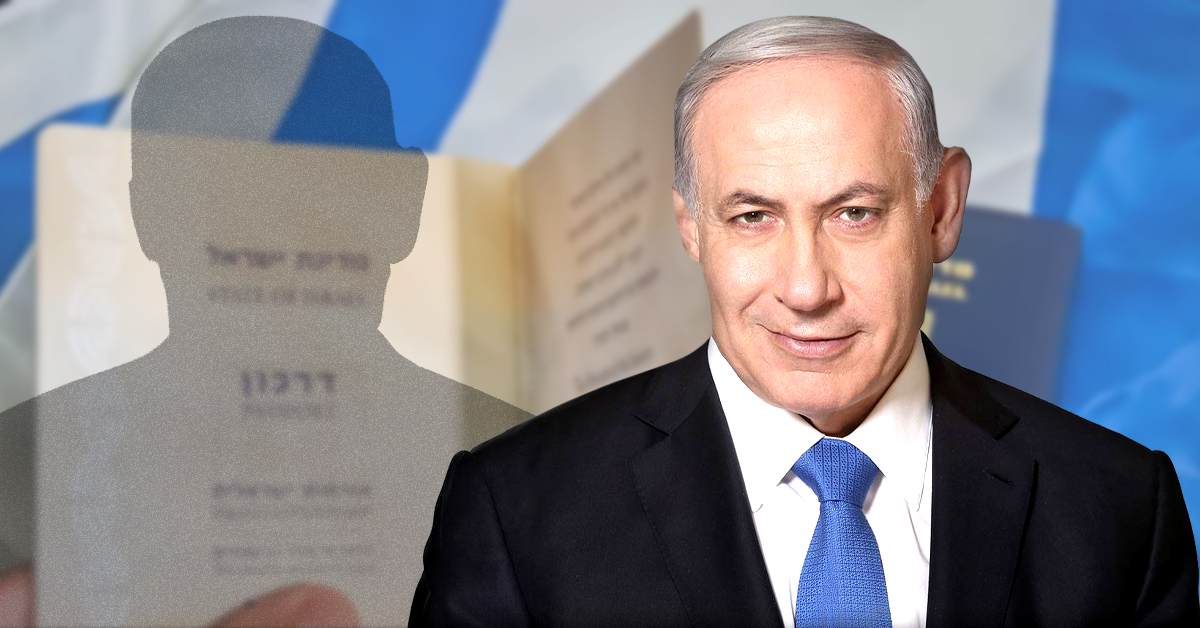Translation from Hebrew: Adina Vogel Ayalon
The Basic Law: Israel – The Nation State of the Jewish People was in the Knesset’s legislative "pipeline" for a number of years, and it was approved in its third reading only at the end of last Knesset session – even then, only after extensive changes were made to the bill. The great protest that the law instigated, as well as the Prime Minister's claims that the legislation does not harm minorities and does not change anything, requires a clause-by-clause review of this law: what has changed and how, and are Israeli citizens – Jews and non-Jews – harmed as a result of the approval of this law.
Dr. Adam Shinar, of the Harry Radzyner Law School at the Interdisciplinary Center in Herzliya, analyzed the law
Click on title for the analysis
Basic principles
A. The land of Israel is the historical homeland of the Jewish people, in which the State of Israel was established
This clause is not very new, and repeats what appears in the Declaration of Independence, that the State is established within the Land of Israel. This does necessarily not mean that there is an overlap between the Land of Israel and the State of Israel.
B. The State of Israel is the national home of the Jewish people, in which it fulfills its natural, cultural, religious and historical right to self-determination
Here there is a new idea: the link between the right to self-determination and religion, self-determination by virtue of religion - of Jews or any other religion – has not been made before.
C. The right to exercise national self-determination in the State of Israel is unique to the Jewish people
This clause is more problematic: Only the Jewish people have the right to self-determination. There are no collective rights for Muslims, Christians and Arabs, etc. - for example, the right to culture, language, and religious rights. We clarify that the State of Israel is intended first and foremost for Jews, and other groups can not realize their own aspirations for self-determination.
The symbols of the state
A. The name of the state is “Israel”
There is no difference from the status before the law
B. The state flag is white with two blue stripes near the edges and a blue Star of David in the center
The "Flag Law" affixes the Israeli flag in law - but this provision upgrades the flag to a legal status that is constitutional. A law that is relatively easy to change, due to the court's ability to declare one provision or another as contradictory to the Basic Laws. But as the law is now part of the constitution, it will be hard to say that the constitution is unconstitutional.
C. The state emblem is a seven-branched menorah with olive leaves on both sides and the word “Israel” beneath it
There is no difference from the status before the law
D. The state anthem is “Hatikvah”
There is no difference from the status before the law
E. Details regarding state symbols will be determined by the law
All of these clauses include Jewish characteristics: "a Jewish soul sings" from "Hatikvah", a Star of David in the flag, the Menorah of the Temple in State’s emblem. It is intended to clarify that the State is Jewish at the constitutional level, and that its founding symbols are Jewish, thereby creating an inferior status for non-Jews. France is a nation state, but everyone can be French. The law claims that Israel is not a state of Israelis with an Israeli nationality, but rather a Jewish nation, and thus, we refer only to Jews in the population.
The capital of the state
Jerusalem, complete and united, is the capital of Israel
Does not add anything new to the existing 1980 "Basic Law: Jerusalem - Capital of Israel," which establishes the same thing. The problem is not the repetition, but the fact that a "unified Jerusalem" includes East Jerusalem, an area occupied in 1967 that is not recognized by the United Nations or international law, and is considered illegal territory. But according to Israeli domestic law, the State’s law apply law to this territory.
Language
A. The state’s language is Hebrew
There is no difference from the status before the law.
B. The Arabic language has a special status in the state; Regulating the use of Arabic in state institutions or by them will be set in law
Until the Nation State Law, it was customary to think, on the basis of the mandatory provision known as "The King's order-in-council," that Arabic and Hebrew have equal status as official languages. This law says that Hebrew is the language of the State, and that Arabic has a "special" status. What does "special" mean? The law does not define this. This is an attempt to establish the supremacy of the Jewish dimensions of the State and the inferiority of the Arab minority, and its language among other things.
C. This clause does not harm the status given to the Arabic language before this law came into effect
Of course, the law does not change what was, but what will happen in the future? We do not know. The law is a form of preparation - if in the future they want to do something, for example, to determine that a particular public service will not be given in Arabic, it will be possible for the State to say that Arabic is no longer an official language. This is a symbolic insult, but there is also a fear of future damage, of which are not yet aware.
Ingathering of the exiles
The state will be open for Jewish immigration and the ingathering of exiles
There is no difference from the status before the law
Connection to the Jewish people
A. The state will strive to ensure the safety of the members of the Jewish people and its citizens in trouble or in captivity due to their Jewishness or their citizenship
If an Arab is captured because of his Israeli citizenship, the State will also be responsible for him. The State makes itself responsible not only for its Jewish citizens in Israel, but of all the Jews in the world. In other words, if you are a Jew and not an Israeli citizen, the State will also take care of you. The State's resources (everyone’s taxes, including the Arabs) will also be directed to assistance for non-citizens (for example, a Jew imprisoned abroad because the regime in that country is anti-Semitic).
B. The state shall act within the Diaspora to strengthen the affinity between the state and members of the Jewish people
An interesting clause: it was initially drafted differently, it was supposed to apply also within Israel, but the ultra-Orthodox parties feared that state funds would be allocated to Reform and non-Orthodox bodies. Therefore, they changed the clause, and in effect it says that the state will act in this regard abroad.
C. The state shall act to preserve the cultural, historical and religious heritage of the Jewish people among Jews in the Diaspora
The state can run programs among their Jewish communities in the United States, France or Argentina in order strengthen or establish the heritage of the Jewish people. We do not preserve the historical heritage of Israeli Arabs, for example, only of the Jews.
Jewish settlement
The state views the development of Jewish settlement as a national value and will act to encourage and promote its establishment and consolidation
A clause of operative rather than merely symbolic nature that establishes a basis for discrimination. The value of the settlement of the land existed both in the Declaration of Independence and before the establishment of the state. Here the law says that only Jewish settlement has value (discriminates against all non-Jews, like the Druze, for example). Does this mean that the state will only be able to establish settlements for Jews? Can you provide economic incentives to settle in a certain place only to Jews? That's a question. The priority is to advance the settlement of one group over the other. In a country where the resources are limited, this promotion will come at the expense of something else.
Official calendar
The Hebrew calendar is the official calendar of the state and alongside it the Gregorian calendar will be used as an official calendar. Use of the Hebrew calendar and the Gregorian calendar will be determined by law
Not a problematic provision, it merely further establishes the elements of Judaism in the State.
Independence Day and memorial days
A. Independence Day is the official national holiday of the state
There is no difference from the status before the law.
B. Memorial Day for the Fallen in Israel’s Wars and Holocaust and Heroism Remembrance Day are official memorial days of the State
There is no dramatic change from what has occurred thus far.
Days of rest and sabbath
The Sabbath and the festivals of Israel are the established days of rest in the state; Non-Jews have a right to maintain days of rest on their Sabbaths and festivals; Details of this issue will be determined by law
Immutability
This Basic Law shall not be amended, unless by another Basic Law passed by a majority of Knesset members
It is not enough for the majority to attend the Knesset; A majority of at least 61 members of Knesset is required in each of the readings of the bill. In addition, the change must be a Basic Law (i.e. "Basic Law: Amendment"). This means the law protects itself – it is not impossible to amend, any coalition can change this law, but it will not be simple, as it requires the majority. This is an exceptional move: "Basic Law: Human Dignity and Liberty," for example, does not require a majority for change.
"As a rule," concludes Dr. Shinar, "the law excludes non-Jews, since this is a law that deals only with Jews and establishes their political superiority. No less important than what is in the law is what is not there: a promise of equality and democracy. "
After Shinar's analysis, it is almost impossible to say that the new Basic Law does not adversely affect the status of all non-Jewish citizens in Israel. The Prime Minister's insinuations that the law does not adversely affect non-Jews serving in the army, for example, are inconsistent with the wording of the law that he supported at its approval.
It is quite possible that this is a law that will enter the history books, as so many among right-wing politicians declared immediately after its ratification. It is not at all certain, however, that this law will be recorded in history as a positive thing.



